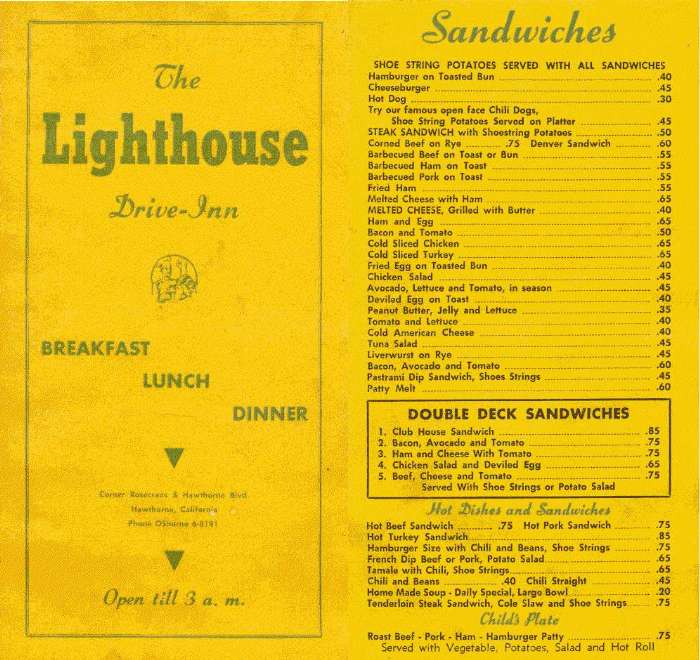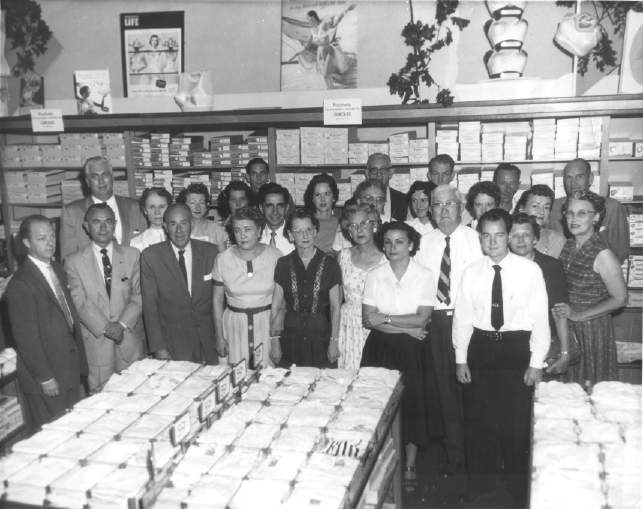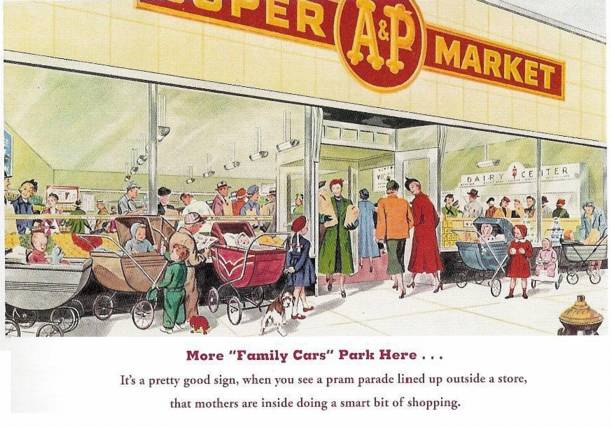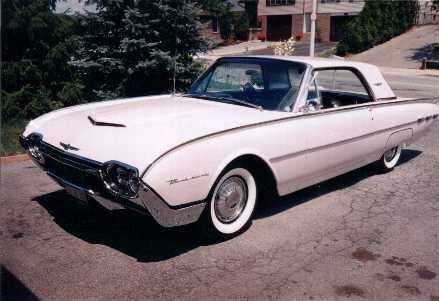The Destruction of My Hometown
I don’t recall exactly what she said, but blogging pal Keats mentioned something on her page that set my mind to thinking of how badly Los Angeles has been destroyed by developers. I could probably spend a lifetime writing about the awful changes, but suffice to say that Los Angeles used to be a hell of a lot nicer than it is now. At times it can seem to be nothing but strip malls connected by freeways, clogged with traffic and choked by smog.
I grew up in Hawthorne, one of the many small cities that make up what most people refer to as Los Angeles. Today’s post is a reminiscence of what was once a beautiful city, now forever lost.
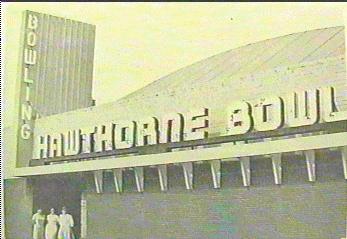
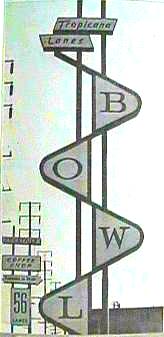
Here is the Hawthorne Bowl, which was on Hawthorne Blvd. near 141st. In addition to the bowling lanes it also had a bar, coffee shop, and a few pool tables. In 1961 the name was changed to Tropicana lanes, and that groovy early ’60s sign was erected. If you watch “Grease 2” you can see the bowling alley in one scene. If you go there now you will see some medical offices.


This next one is Holly’s, which was later known as the Hawthorne Grill. To many people, myself included, it defined Hawthorne– it was her heart and soul. You took it for granted that it would always be there. Unfortunately, a modern city can never have too many strip malls, so Holly’s was demolished.

The opening and closing sequences of “Pulp Fiction” were filmed at the Hawthorne Grill.
Here is Chips Restaurant, another ’50s-era diner. Happily, this restaurant is still there. Or at least it was the last time I was in Hawthorne. The demolition of Holly’s came as a nasty shock to me when I pulled up to a vacant lot in search of breakfast one morning.

If you moved along Hawthorne Blvd. and went one block south of El Segundo you would have been at Skippy’s.

Skippy’s was later renamed Biggie’s, and it was one of the great Hawthorne hangouts in the late ’50s and early ’60s. For 19 cents you could buy a hamburger, and french fries were an extra 14 cents. If you had another 24 cents you could splurge for a malt. Even by 1960s standards, those were cheap prices.
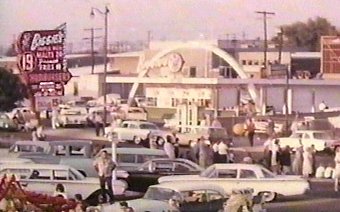
They tore down Biggie’s to build a Sizzler.
Here’s the now-gone A&W,
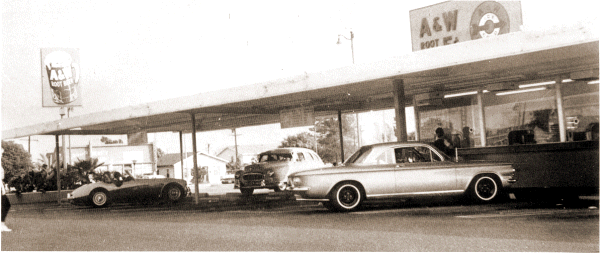
and a menu for the Wichstand, also no more.
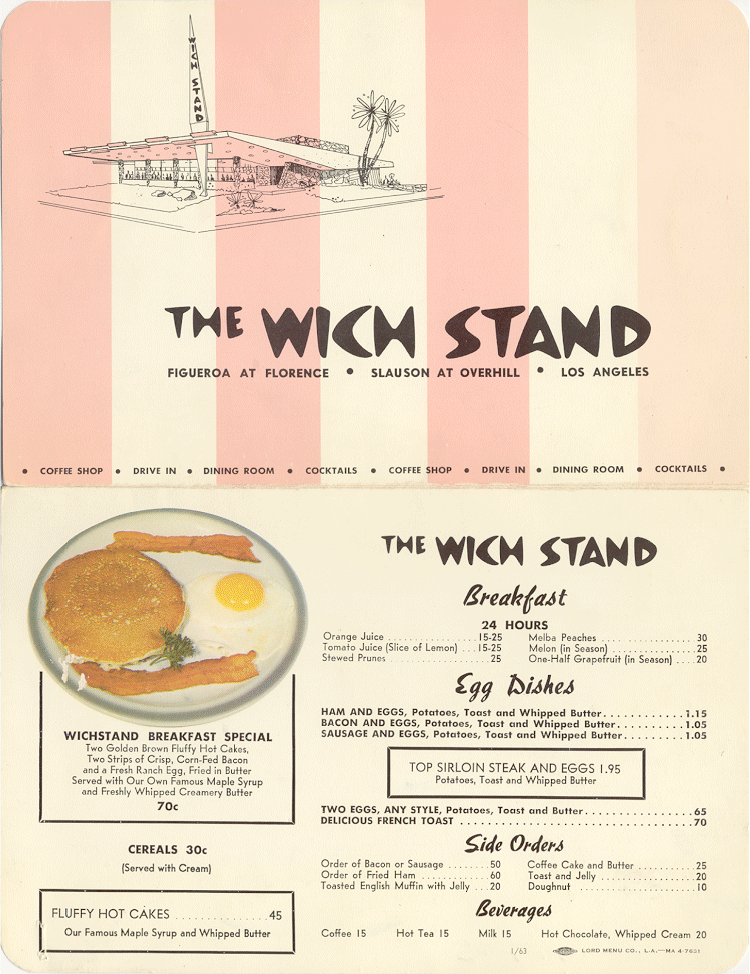
After we moved away, we would always stay at the Cockatoo Inn Hotel when we visited. It was really nice

It’s not as nice now:

Here’s another long-lost Hawthorne landmark, the Lighthouse Drive-In. It was another eatery, popular amongst my Mom’s high school crowd at Leuzinger High.
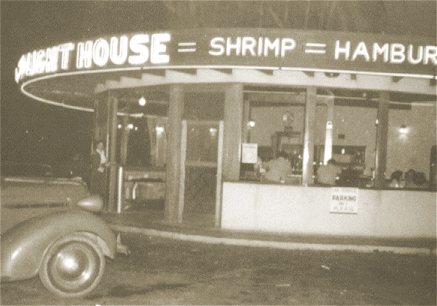
You can click the image below to see the Lighthouse’s menu as it looked in the late ’50s. (Click to enlarge.)
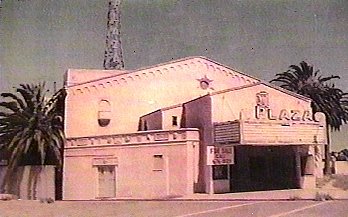
Each time a landmark is demolished to make way for an ugly, cookie-cutter strip mall, Hawthorne loses something precious, but perhaps near the top of the list of locales which are missed is the Plaza Theater. One by one this nation’s beautiful cinemas are being destroyed and replaced with ugly multiplex theaters. This picture doesn’t do justice to the Plaza, but you can almost make out the wonderful open-frame steel tower with the Plaza letters on it.
Now let’s take a broader look at the city. Here are some panoramic photographs that will hopefully give you a better idea of the town. You can click on each of them to see them at their full size.
The first one is the block across from where I grew up. If you scroll all the way to the right (the picture is pretty long) you will see Mastin’s Drugstore. My mother worked there, many many moons ago. Look at all the unique buildings, each one serving its purpose for the community.
Now brace yourself. Here is what it looks like today. This is the same shot, 50 years or so later. May I present to you the Broadway Mall, currently closed and boarded up due to lack of business. Is it any surprise that nobody came here to shop? The Plaza Theater above was just one of the many buildings that was destroyed to build this crime-riddled eyesore.
In this next picture, this time the west side of Hawthorne Blvd. near 122nd, you can see the streetcar tracks running down the middle of the road. They tore out the tracks when they got rid of the street cars, and turned it into a left turn lane to accommodate the cars everyone bought once you could no longer get around via the Los Angeles Railway. You can also see Chaney’s department store. My father worked there for a while, learning the shoe trade before he opened his own shoe store nearby.
Speaking of my Chaney’s, here’s a great picture of the Chaney’s staff in October of 1957. Not exactly pertinent to the post, but a fun picture nonetheless. If you click it, it will get bigger. Can you spot my daddy?
Here’s my Dad again, this time with his friend Roy. You can see Hawthorne Blvd. in the background. Notice all the open space. You certainly couldn’t play baseball there now. Speaking of open space, my grandfather used to cook cabliagetti (sp?), a variety of wild mustard green, that he picked in the open field in Hawthorne that is today a part of the Los Angeles International Airport. My uncles hunted rabbits there. I bet there are no longer wild rabbits in Hawthorne; if there are any, they certainly are not living at LAX.
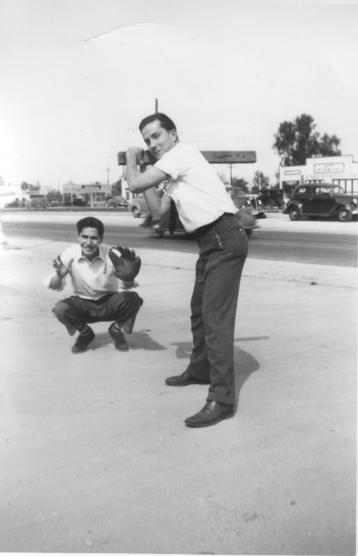
And once again, Dad. This time at his then-new shoe store. This was taken in about 1961. A few years back the city of Hawthorne invoked the law of eminent domain and forced us all to sell our property in order for them to build a new police department, so the store is no more.
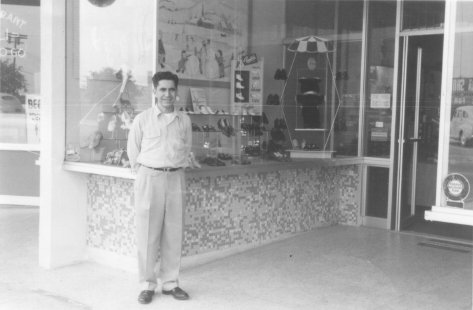
Do I sound bitter? I am. I am deeply saddened when I drive through any city, not just my hometown, and see row after row of Home Depot, Starbucks, KFC, Jamba Juice, and so on. It’s just the same shops and restaurants, repeated over and over. I am not anti-corporation at all, and I think it’s great to have chain stores, but not exclusively. It’s the unique businesses that give each city its character and personality, and when you just replicate the same thing over and over again, it’s not only ugly and boring, but it destroys the quality of life and removes the fun of exploring a new city.
